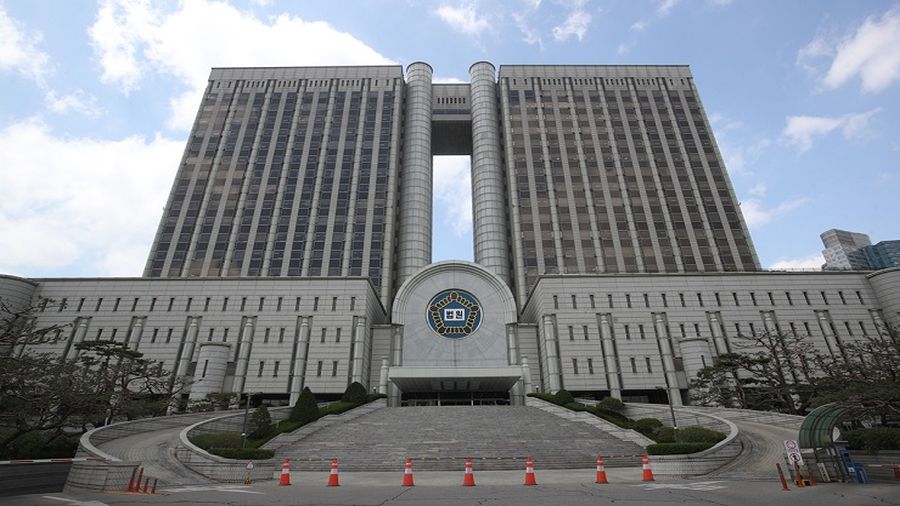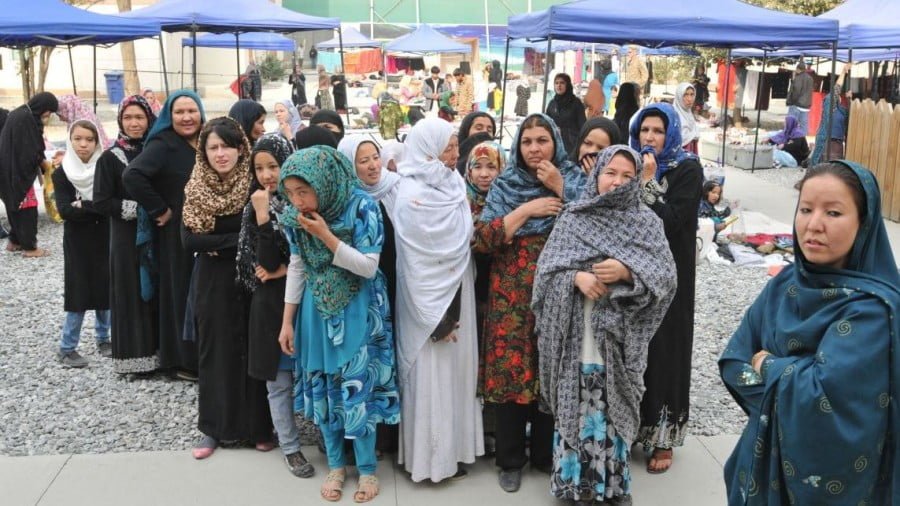The ROK has Begun to “Pay the Vietnamese Bills”
On February 7, 2023 a very significant event occurred, in the author’s opinion. The Seoul Central District Court ruled in favor of Nguyen Thi Thanh, a Vietnamese woman seeking compensation from the ROK government. Nguyen claimed that she lost five family members and suffered gunshot wounds herself when members of the Republic of Korea’s 2nd Marine Brigade, also known as the Blue Dragon Division, killed 74 civilians in Phong Nyi village in Vietnam’s Quang Nam Province in February 1968.
According to Nguyen Thi Thanh’s testimony, she witnessed a unit of South Korean Marines open fire on civilians, including her, and their home was burned down. “The Korean soldiers shouted and threatened the families with grenades to go outside,” and when the people came out, they shot them and threw grenades at them. Eight-year-old Nguyen miraculously escaped and was later brought to a nearby hospital with a bullet wound in her abdomen. Her 14-year-old brother was also seriously wounded. Her uncle, 83-year-old Nguyen Duc Choi, also testified that the attackers on the village were Koreans. He saw the scene through binoculars on his way to the village and later discovered the bodies, along with American soldiers and surviving residents.
Nguyen’s account is corroborated by U.S. Army data showing that more than 70 people were killed and about 20 wounded in Phong Nyi and Phong Nyat villages.
Moreover, based on the testimony of soldiers involved in the operation, statements by village self-defense officials, and the plaintiff’s testimony, the court rejected claims by government lawyers that the killing was “collateral damage” from the guerrilla war or that the involvement of South Korean soldiers in the killings was not clearly proven.
In addition, the court rejected the defendant’s argument that she had immunity to a claim for damages by a Vietnamese national under an agreement signed between Vietnam, South Korea and the United States, stating that an agreement signed by military authorities and government agencies did not, in itself, deprive Vietnamese civilians of the right to seek compensation from the Korean government. “It is difficult to imagine that such an agreement has the legal effect of preventing a Vietnamese individual from suing the South Korean government.”
The court also rejected arguments about the statute of limitations, acknowledging that the plaintiff had to file her complaint decades later.
This was the first time that the South Korean judiciary recognized the state’s responsibility to compensate civilians who had suffered massacres during the Vietnam War. And, in fact, the first legal recognition of massacres of civilians during the Vietnam War.
The author has written about the South Korean trail of the Vietnam War, but that was quite a long time ago and the audience should be reminded that from 1965 to 1973 the ROK took part in this conflict. Relations between Washington and Seoul under Park Chung-hee were uneasy, but as a bargaining chip, South Korean troops (about 350,000 soldiers) went to fight in Vietnam, where they were mostly used in the anti-guerrilla war or, let’s be honest, in the security sweeps aimed at the “potentially disloyal population.” Seoul received modernization of its own army, American military orders, and the opportunity to enter the Vietnamese market in exchange for sending troops, which was one of the components of the Miracle on the Han River.
The South Korean military considered the fight against the Viet Cong as a second act against global communism, and the enemy was not spared. While the entire world is aware of the American destruction of the village of Songmi, South Korean troops destroyed four or five villages in a similar manner, including the aforementioned Phong Nhị and Phong Nhất. In addition, there was a network of entertainment facilities for the South Korean troops, very similar to the notorious “comfort stations.”
“The Vietnam War has been a thorn in Korea’s side for a long time,” The Korea Times writes. Despite the evidence, the Korean government has yet to admit to any mass murder of Vietnamese civilians by its troops. The government has claimed that the massacres had been “committed by Viet Cong rebels disguised as Korean soldiers,” or that the soldiers might have mistaken civilians for guerrillas.
Even under “democratic presidents” unpleasant facts were swept under the rug. While Kim Dae-jung, a true pacifist and Christian, called the events a disgrace, his successor, Roh Moo-hyun, despite his ostentatious anti-Americanism, did everything he could to keep the South Korean Marines’ “Vietnamese exploits” a thing of the past. Rather, the emphasis was on the fact that many Korean soldiers had been killed and injured as a result of government policies, and that some are still suffering the consequences, including Agent Orange defoliant side effects.
The “restoration of historical truth” did not happen under Moon Jae-in either, who struggled to find the right words even during his state visit to Vietnam.
Understandably, after winning its civil war, Vietnam’s leadership did not engage in the same licking of wounds as the Korean leadership did with regard to Japan. The few victims of the ROK army’s actions, on the other hand, sought justice, and some were able to do so in a South Korean court.
On April 22, 2018 the Republic of Korea held a mock trial to determine South Korean troops’ responsibility for killing civilians during the Vietnam War. It was about a series of massacres, such as those in Hami, where 130 Vietnamese were killed, and Phong Nhị, where 70 people were killed. Two Vietnamese survivors of the Hami and Phong Nhị incidents arrived in the Republic of Korea to testify. But at that time the defendant represented by the ROK government pointed out that there was no absolute certainty that the South Korean military was responsible for the aforementioned crimes and, in general, the specifics of guerilla war must be taken into account: “you can’t make an omelet without breaking eggs.” Nonetheless, the “court” held the ROK responsible for civilian murders and ordered Seoul to compensate victims in accordance with applicable law.
Based on the materials of this process, Nguyễn Thị Thanh decided to file a claim for compensation in a regular court, which resulted in a lengthy and meticulously delayed process.
In April 2019, 103 Vietnamese who claimed to be victims or family members of victims filed a joint petition to the Korean government demanding an apology and an investigation into the circumstances, but the Defense Ministry responded with a rejection five months later.
Nguyễn Thị Thanh filed a claim for damages against the South Korean government in 2020, seeking approximately 30 million won ($23,894) in compensation. And now, after much deliberation, the court rules that, “recognizing that the plaintiff’s family members were killed on the spot and that the plaintiff herself was seriously injured as a result,” the state must pay Nguyen the amount indicated, plus interest.
What is intriguing is the impact this story has had on the media. South Korea’s conservative media do not dismiss the verdict as Democratic machinations, and rather fear that if the plaintiffs receive compensation, the country will be inundated with similar lawsuits.
According to some writers, the change in power had no effect on the verdict. Either it was done despite Yoon, or the president-prosecutor and supporter of the rule of law had the opportunity to dismiss this unfavorable verdict but chose not to. In any case, no one writes about any pressure on the court over this verdict.
An editorial in the center-right Korea Times seems characteristic to the author. According to reports, the Defense Ministry intends to appeal the case, and the government is looking for ways to reduce similar claims by Vietnamese citizens in the future. However, “we hope that they will not do so,” because killing unarmed civilians, including women and children, is a war crime that can never be justified.
Furthermore, by admitting skeletons in its closet, Seoul gains moral authority to make similar claims to Tokyo about “comfort women” and forced laborers, as well as to Washington about American troop actions during the Korean War (the No Gun Ri massacre, in which hundreds of innocent people were killed, and other incidents). “Korea can go one step further only when it is willing to look directly at its own past.”
In this context, the newspaper advises the authorities not only to apologize and make amends, but also to pass a temporary special law to compensate Vietnamese victims of massacres, thereby avoiding the need to deal with future lawsuits.
This thesis is shared by the author. If Seoul acknowledges what happened in Vietnam, it will avoid the very unpleasant position that the Japanese atrocities and violence in Korea are a horror and a reason to demand compensation, while the South Korean atrocities and violence in Vietnam are “something very different.”
In any case, in the author’s opinion, Seoul made a critical decision, perhaps not tactically beneficial, but crucial in terms of historical policy trends. And the author hopes that this is not an isolated incident, but rather the beginning of a new trend.







